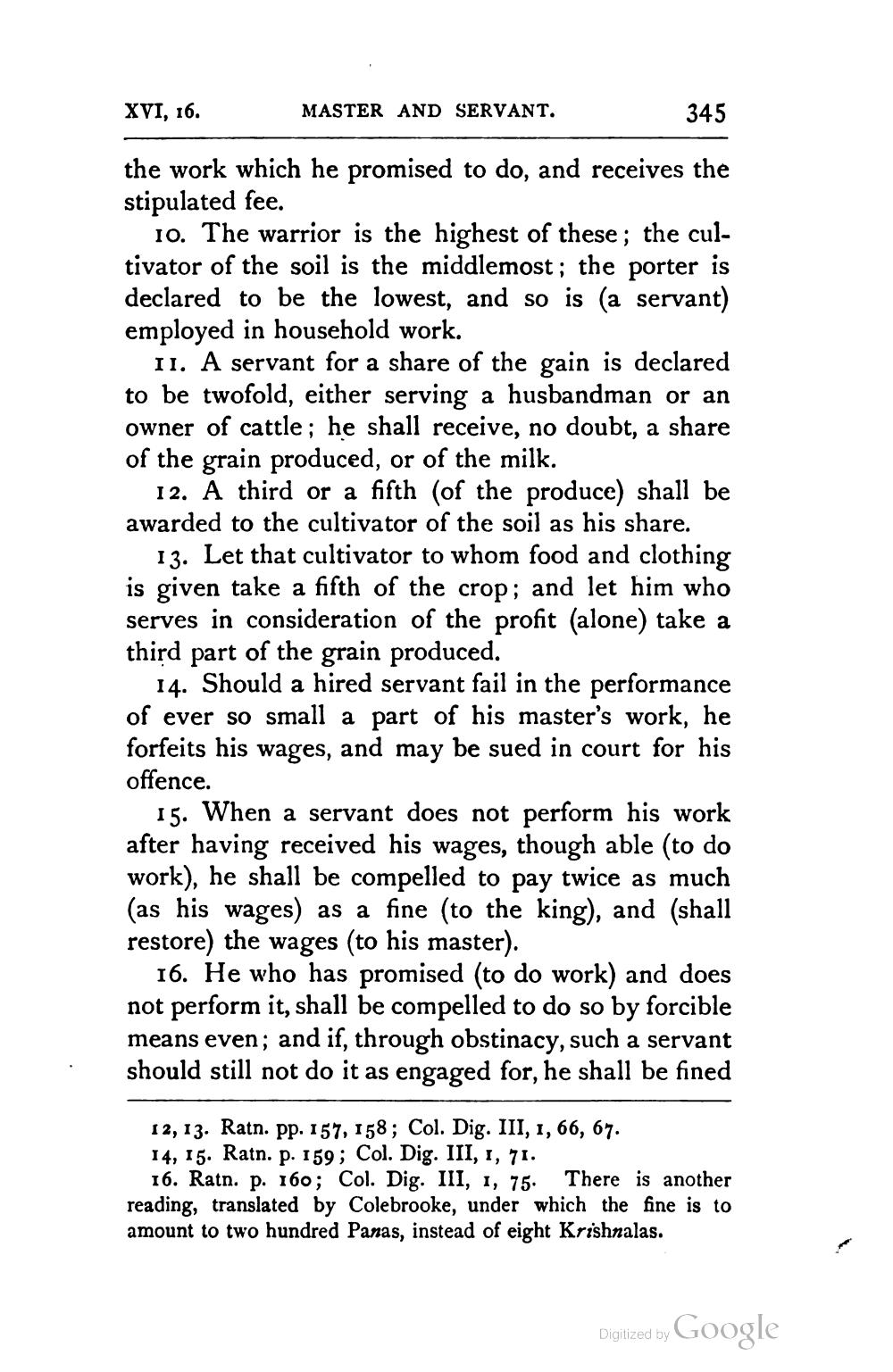________________
XVI, 16.
MASTER AND SERVANT.
345
the work which he promised to do, and receives the stipulated fee.
10. The warrior is the highest of these; the cultivator of the soil is the middlemost; the porter is declared to be the lowest, and so is (a servant) employed in household work.
11. A servant for a share of the gain is declared to be twofold, either serving a husbandman or an owner of cattle; he shall receive, no doubt, a share of the grain produced, or of the milk.
12. A third or a fifth (of the produce) shall be awarded to the cultivator of the soil as his share.
13. Let that cultivator to whom food and clothing is given take a fifth of the crop; and let him who serves in consideration of the profit (alone) take a third part of the grain produced.
14. Should a hired servant fail in the performance of ever so small a part of his master's work, he forfeits his wages, and may be sued in court for his offence.
15. When a servant does not perform his work after having received his wages, though able (to do work), he shall be compelled to pay twice as much (as his wages) as a fine (to the king), and (shall restore) the wages (to his master).
16. He who has promised (to do work) and does not perform it, shall be compelled to do so by forcible means even; and if, through obstinacy, such a servant should still not do it as engaged for, he shall be fined
12, 13. Ratn. pp. 157, 158; Col. Dig. III, 1, 66, 67. 14, 15. Ratn. p. 159; Col. Dig. III, 1, 71.
16. Ratn. p. 160; Col. Dig. III, 1, 75. There is another reading, translated by Colebrooke, under which the fine is to amount to two hundred Panas, instead of eight Krishnalas.
Digitized by Google




